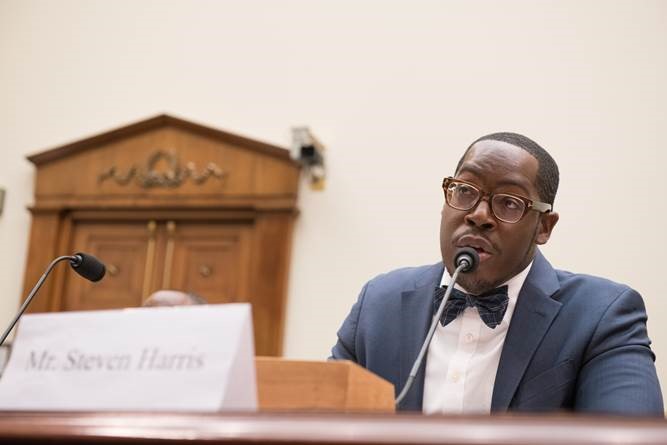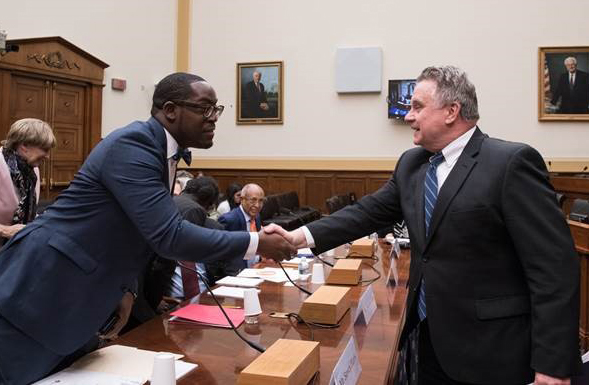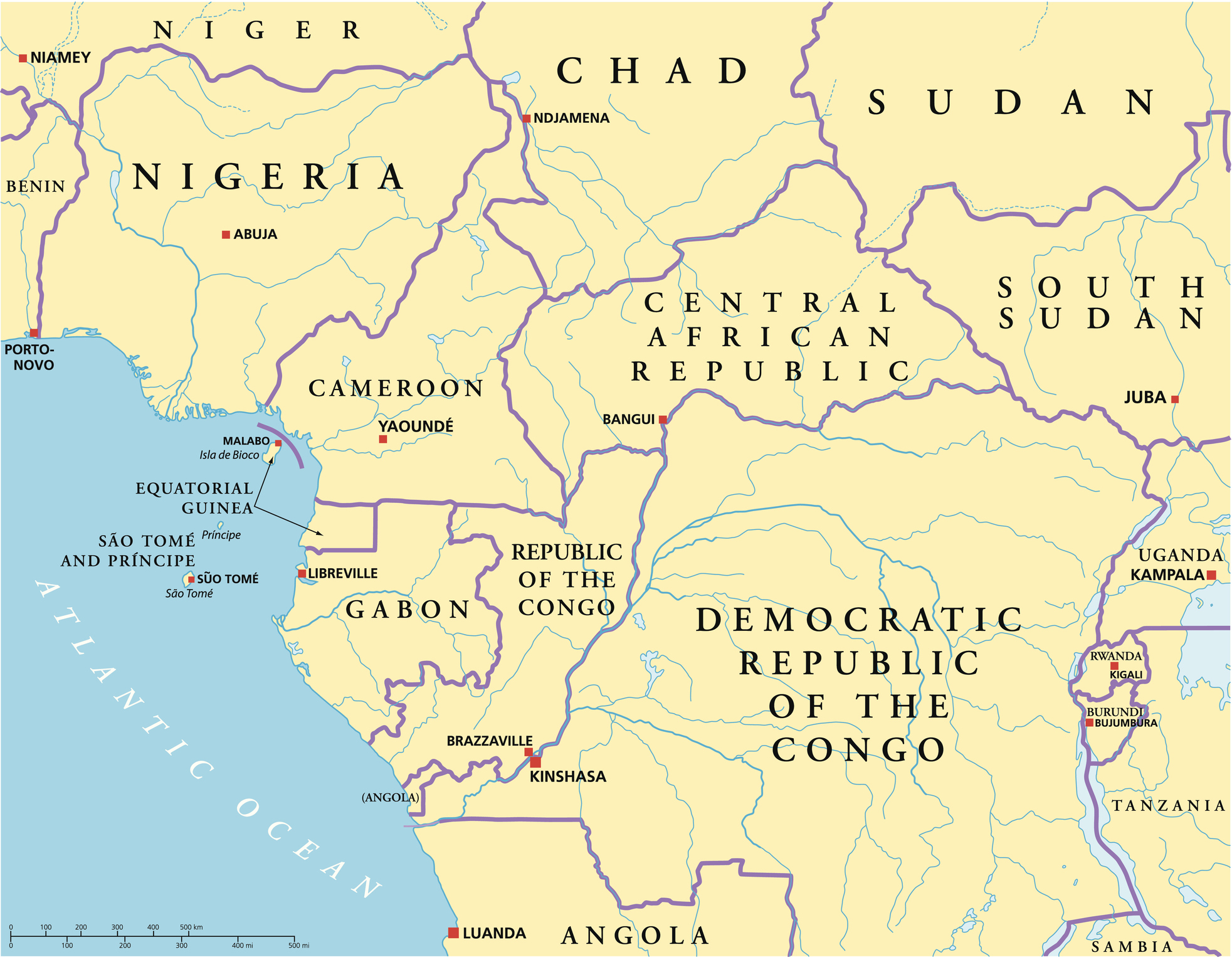
WASHINGTON (BP) — Religious freedom should be a priority for U.S. relations with autocratic regimes in Sub-Saharan Africa, a Southern Baptist policy specialist told members of Congress Wednesday (May 9).
 Steven Harris, a policy director for the Ethics & Religious Liberty Commission, called for the focus on religious liberty during his testimony to a House of Representatives subcommittee of the Foreign Affairs Committee. The hearing addressed the federal government’s response to the increasing restrictions on religious groups, journalists and other sectors of civil society in countries such as Sudan, South Sudan, Democratic Republic of Congo, Rwanda and Burundi.
Steven Harris, a policy director for the Ethics & Religious Liberty Commission, called for the focus on religious liberty during his testimony to a House of Representatives subcommittee of the Foreign Affairs Committee. The hearing addressed the federal government’s response to the increasing restrictions on religious groups, journalists and other sectors of civil society in countries such as Sudan, South Sudan, Democratic Republic of Congo, Rwanda and Burundi.
Concern for religious liberty should be a part of this country’s assessment of the African governments in question for three reasons, Harris told the subcommittee:
— “[I]t cannot be rehearsed enough that the right to be religiously free — that is to worship or not to worship according to the dictates of one’s own conscience — is a right that stands at the heart of what it means to be human.
 — “[A]s we consider whether certain democratic ideals are taking root in a particular country, it is important to remember that the consent to be governed does not, ought not, include state ownership over the conscience.
— “[A]s we consider whether certain democratic ideals are taking root in a particular country, it is important to remember that the consent to be governed does not, ought not, include state ownership over the conscience.
— “[T]he suppression of religious freedom can be correlated not only with safety concerns for the people of a given state but also with broader global security concerns — including U.S. national security.”
A failure to protect religious liberty normally results in other human rights violations as well as violence and destabilization in a country, Harris said.
Rep. Chris Smith, R-N.J. — chairman of the Subcommittee on Africa, Global Health and Human Rights — opened the hearing by saying the “closing of space” for religious organizations and others is “indeed an extraordinarily worrying trend” in several Sub-Saharan African countries. The international community has the tools to protect the space for churches, journalists and others, he said.
 “We can do it, and we must do it, and we must do it robustly,” Smith said.
“We can do it, and we must do it, and we must do it robustly,” Smith said.
In their testimony, witnesses pointed to various acts of repression:
— Sudan has a list of 27 churches it has demolished or plans to demolish and has banned the construction of new church buildings since 2014 in a country where Islamic Sharia law has a place of privilege.
— Rwanda has closed more than 700 churches, it was reported in March.
— Burundi announced May 4 the broadcasts of Voice of America (VOA) and the British Broadcasting Corp. would be suspended for six months — a development that occurred less than two weeks before a constitutional referendum that would enable the current president to remain in office beyond 2030.
— Congo-Brazzaville government authorities (different from the Democratic Republic of Congo) have harassed, beaten, imprisoned, tortured and possibly killed journalists.
In response to a question from Smith, Harris told the subcommittee religious liberty “serves as a kind of cornerstone of the free society.”
“It is our sincere belief that if this particular freedom is not safeguarded, then the hopeful efforts that we would like to see, particularly with Sudan, are going to be short-lived,” Harris said.
In Rwanda, Harris told the panel, commentators have said religion is seen as the last space “where individuals could imagine a future that they themselves would like to see put in place. These spaces are in many ways incubators of democratic ideals … beyond perhaps the horizon of the current governmental structure.”
Longtime human rights advocate John Prendergast said Congress needs to lead the way in implementing both network sanctions and anti-money laundering provisions to shut corrupt officials out of the international financial system and protect civil society.
“Network sanctions work because they affect not only the primary individuals themselves but also those who are acting on their behalf and the companies that are owned or controlled by the primary individuals,” he told the subcommittee.
Prendergast, founding director of the Enough Project, said, “The bottom line is this: Condemning words are fine. But the issues that we’re talking about today require serious actions that impose serious consequences…. [I]t’s about building leverage for human rights, for the promotion of democracy, for the promotion of religious freedom.”
Other witnesses were Negussie Mengesha, director of VOA’s Africa Division; Nanythe Talani, representative of the Torture Abolition and Survivors Support Coalition and former investigative journalist in Congo-Brazzaville; and Emerson Sykes, legal adviser for Africa programs at the International Center for Not-for-profit Law.
Video of the hearing is available at https://foreignaffairs.house.gov/hearing/subcommittee-hearing-protecting-civil-society-faith-based-actors-and-political-speech-in-sub-saharan-africa/.















